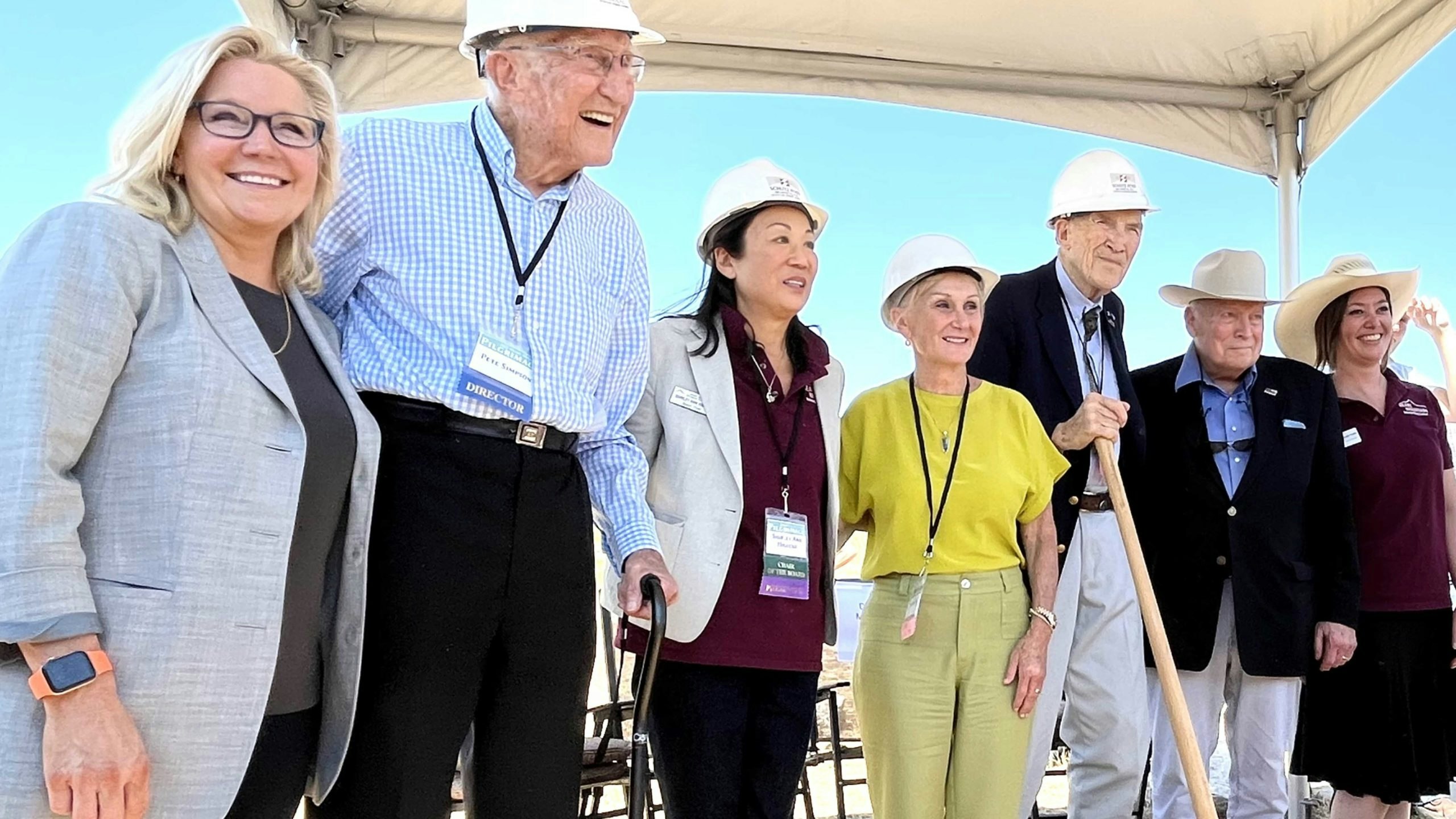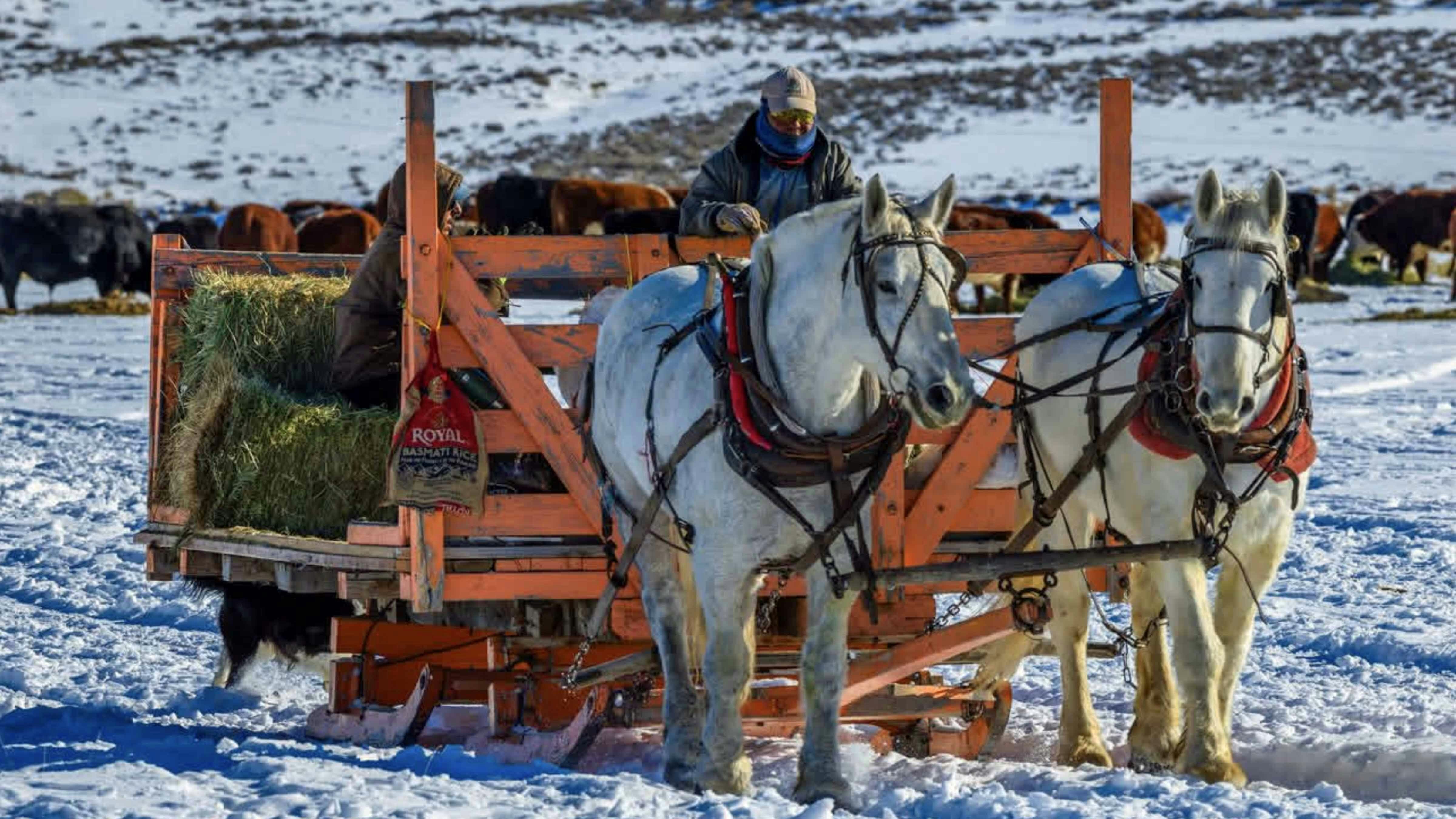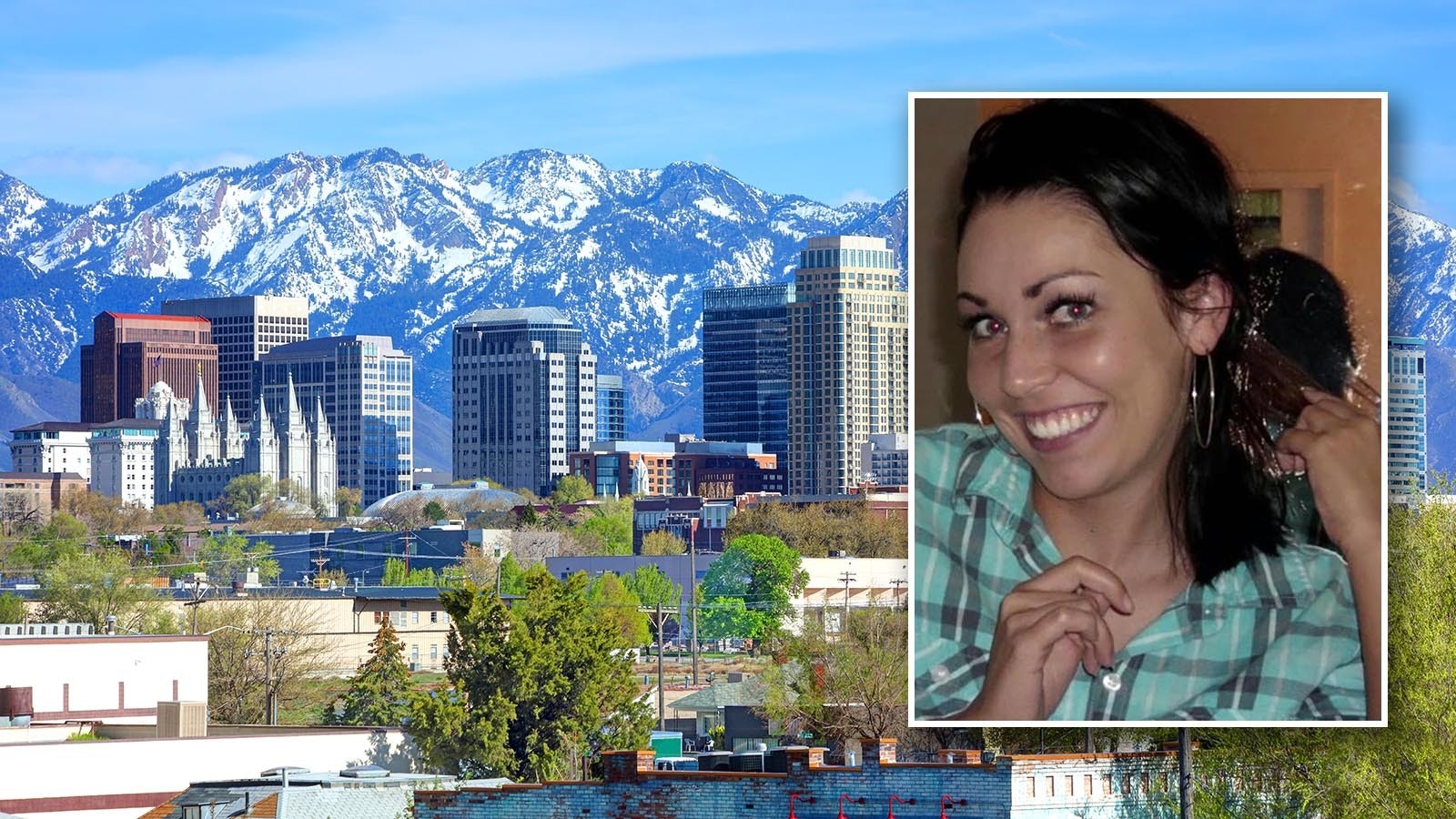Legendary figures in Wyoming politics came out to witness a groundbreaking of The Mineta-Simpson Institute at Heart Mountain Interpretive Center on Saturday, what they and organizers hope will be a vessel of hope for a brighter future.
The facility is being built to honor the lives of former U.S. Senator Alan Simpson and the late U.S. Rep. Norm Mineta, D-Calif., longtime politicians and friends who served during a more civil time in American political discourse.
The 7,341-square-foot addition to the existing Interpretive Center will be a conference center for workshops and programming, supported by a full kitchen and modern digital production and broadcasting studio.
“It’s the expansion of our ability to reach a national and international audience with the story of our past here, but also the dynamism of our present and the vision that we have for the future,” said Heart Mountain Wyoming Foundation Chair Shirley Higuchi.
The Interpretive Center is the site of the Heart Mountain Relocation Center, a national historic landmark, where Japanese Americans were forced to stay during WWII.
‘Above Politics‘
“There are some things that are above politics,” U.S. Rep. Liz Cheney said at the event. “The friendship of Norm and Al really represents what this nation can be and what this nation should be and represents to people who have policy disagreements but had a bond that went beyond that.”
Cheney’s father, former Vice President Dick Cheney was in attendance, as was Simpson, Deputy Assistant to President Joe Biden, Erika Moritsugu, and Mineta’s widow, Deni Mineta.
Norm Mineta was a resident of the Relocation Center as a child. During a Boy Scout jamboree he and Simpson met and started a friendship that lasted a lifetime.
“Their friendship was a beacon of light in the darkness,” Deni Mineta said. “And for decades, it showed again in the halls of Washington, D.C. for others to see what was possible. And now, when it’s such a rarity, we need to learn these values once again.”
Norm Mineta passed away in May at the age of 90. After his passing, Simpson made a special trip out to the Interpretative Center to spend a moment with Mineta’s spirit in private. He collected his thoughts not far from where the future Institute will be built.
“I howled into the wind like a banshee, grief-stricken,” Simpson remembered. “It was a good howl and it took me away from the pain and the anguish. And there was silence and calm.”
Simpson said fear and anger are emotions commonly leveraged in today’s political world. It was these same emotions that helped trigger Executive Order 9066 in 1941, which initiated the removal of over 110,000 Japanese Americans into internment camps throughout the country.
“Hatred corrodes the container it’s carried in,” Simpson said, quoting a phrase used by his mother.


$7 Million Raised
Fundraising and planning for the project started in 2018, with around $7 million now raised. Dakota Russell, former executive director of the Heart Mountain Wyoming Foundation, believes the divisive nature of current affairs helped spawn public generosity for the project.
“I think a lot of people realize we’re living in an important political moment in time right now,” said Russell. “We have hope some of the values these two men espoused will take hold and make this country stronger and better.”
Simpson’s daughter, Sue Simpson-Gallagher, said it was Mineta’s forced internment at the Relocation Center that propelled him into politics.
Despite working on the opposite side of the aisle from one another, former Wyoming congressman Dick Cheney and Mineta shared a strong connection.
When Cheney took the role of vice president in the George W. Bush administration, it was Mineta he tapped to be his Secretary of Transportation. It’s a move that seems nearly unthinkable in today’s partisan world of politics.
The two would end up spending critical moments together in the underground Presidential Emergency Operations Center bunker on Sept. 11, 2001.
“It was his honor of a lifetime to be with you in the bunker on 9/11,” Deni Mineta said to the former vice president.
A Better Tomorrow
Simpson believes former President Donald Trump has ushered in a mentality within the Republican Party that compromise is unnecessary and that if you just push harder than your opponent, you can get your way.
“The harder ball they play, the more people they’re going to turn into Independents,” Simpson said.
Still, he has a positive outlook for the future.
“Everything gives me hope. wouldn’t have made it to be 90 without hope,” he said with a laugh.
Simpson has supported Liz Cheney in her reelection campaign against Harriet Hageman, a Trump-endorsed candidate.
Russell said it was fitting that Liz Cheney, who has opposed Trump for his attempts to overturn the 2020 election and his alleged role in inciting the Jan. 6, 2021 Capitol riot, was able to attend the ceremonies.
“Not only for her work as a legislator but for the values for how to live by going forward,” he said.
During their speeches at the ceremony, both Simpson and Liz Cheney fondly remembered the campaigning they did for Simpson’s Senate bid and Dick Cheney’s U.S. House campaign in 1978, one of his daughter’s first political experiences.
“I learned about campaigning and politics and what it means to be involved in public service,” she said.
Simpson-Gallagher also grew up in politics. She finds the bipartisan way her father and Mineta led inspirational for the future.
“They worked with loyalty and compassion, something we’re reminded of every day of our lives,” she said. “Sometimes politics is disappointing but it’s rarely despair.”
John Toyama was born at the Heart Mountain Relocation Center and lived there until the age of three. With tears streaming down his eyes, he spoke of what the facility’s designation means to him.
“It raises awareness of what happened here,” he said. “They were friends who had political views that didn’t matter. Friendship lasts a lifetime.”





